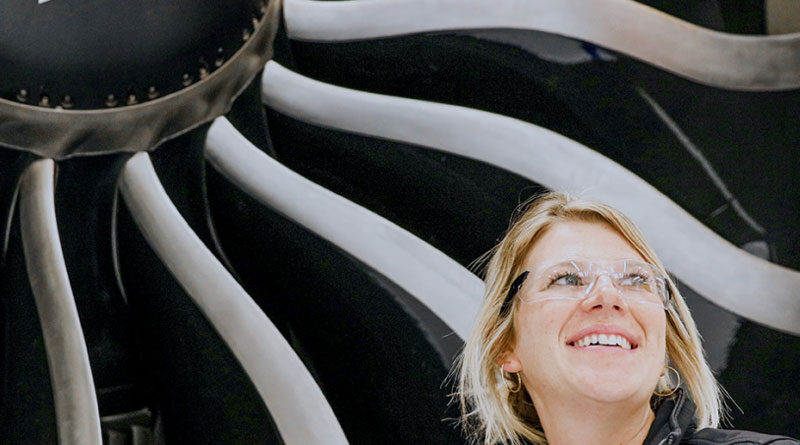GE Aerospace and Partners Propel Sustainable Aviation Fuel Milestone
In a pioneering stride towards sustainable aviation, GE Aerospace, in collaboration with its joint ventures, achieved a significant milestone by successfully testing 10 distinct aircraft engine models exclusively with 100% Sustainable Aviation Fuel (SAF) between 2016 and the present date. This remarkable feat underscores the company’s commitment to one of the most extensive programs dedicated to exploring and validating alternative fuels within the aviation industry.
For instance, in 2018, the GE90 engines powered a historic commercial airliner flight that exclusively utilized 100% SAF on the Boeing ecoDemonstrator, a 777 freighter, in collaboration with FedEx Express. Subsequently, in 2021, the LEAP-1B engines facilitated the inaugural passenger experimental flight featuring 100% SAF in one of the two engines aboard a United Airlines Boeing 737-8. Continuing this trajectory, the LEAP-1B engines successfully propelled test flights utilizing 100% SAF in both engines of the Boeing ecoDemonstrator Explorer, a 737-10 destined for United Airlines this year, as part of collaborative emissions testing conducted with NASA. Most notably, in a recent breakthrough, Emirates became the inaugural airline to operate an Airbus A380 powered by 100% SAF in one of its four GP7200 engines.
Additionally, a diverse array of engines, including F414, GE9X, LEAP-1A, Passport, GEnx, HF120, and CFM56 engines, underwent rigorous testing at various levels—ranging from component-level evaluations to complete engine and aircraft-level assessments—utilizing 100% SAF. These tests encapsulated a broad spectrum of propulsion systems catering to diverse sectors such as domestic and international commercial air travel, military aviation, business, and general aviation. Crucially, these evaluations meticulously scrutinized factors including engine performance, contrail impact, and emissions effects when operating on 100% SAF.
Acknowledging their pivotal role in global aviation, GE Aerospace and its joint ventures power an impressive three out of every four commercial flights worldwide.
Mohamed Ali, Vice President of Engineering for GE Aerospace, emphasized, “These comprehensive tests underscore our leadership in preparing to assist our customers in transitioning to Sustainable Aviation Fuel. Our dedication to understanding the environmental impact of emissions through scientific analysis guides our technological advancements, shaping the future of aviation.”
In a concerted effort to qualify new 100% SAF formulations, GE Aerospace has transitioned from engine system testing to meticulous evaluations at the engine component and sub-component levels. This involves assessing components directly exposed to and influenced by various fuel formulations, ranging from the engine fuel system to the combustion chamber where the fuel undergoes combustion. Diverse SAF types derived from different production pathways are rigorously evaluated to ascertain their impact on engine operability, efficiency, durability, and emissions.
These testing endeavours by GE Aerospace align with the aviation industry’s overarching objective of achieving net zero CO2 emissions by 2050. A pivotal interim target set during the third ICAO Conference on Aviation and Alternative Fuels (CAAF/3) in November aims for aviation fuel in 2030 to exhibit a 5% reduction in carbon intensity compared to conventional jet fuel. This aligns with the collective call from seven chief technology officers of major aviation manufacturers, including GE Aerospace, urging governments for supportive policies to expedite the availability and adoption of certified SAF.


